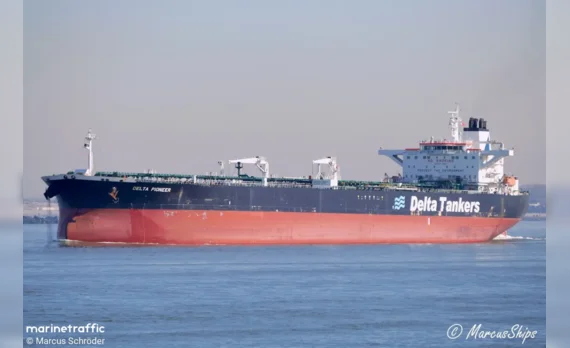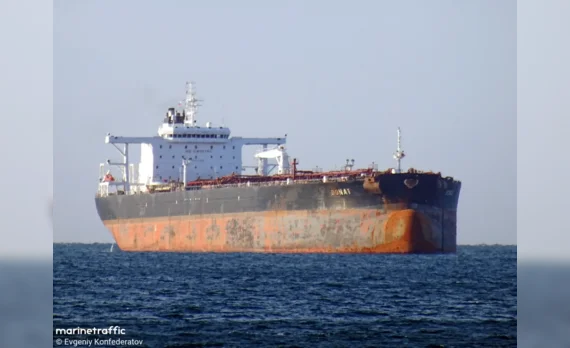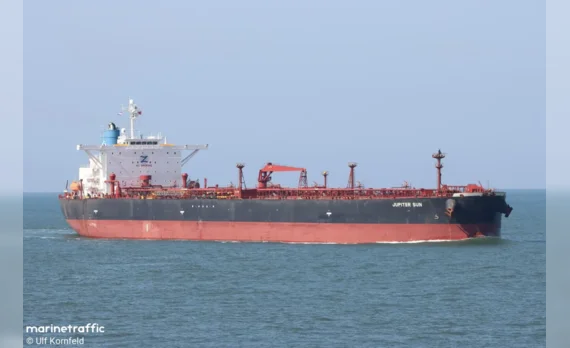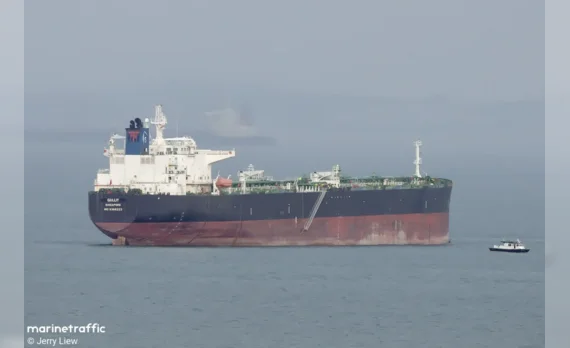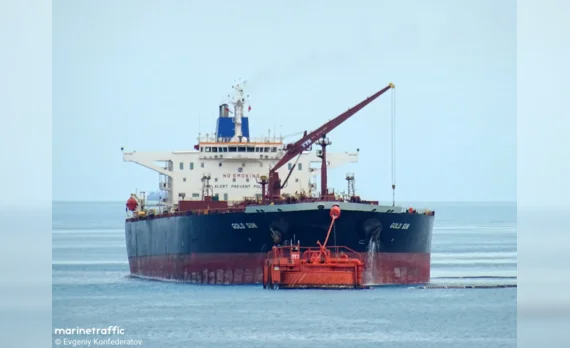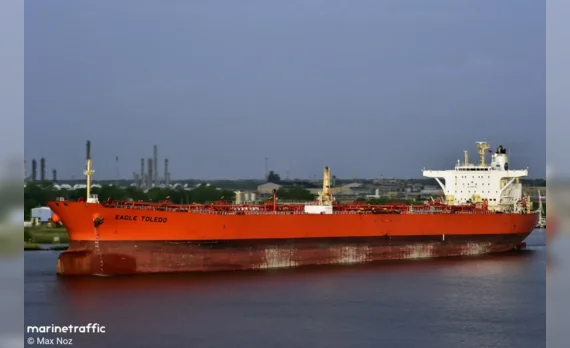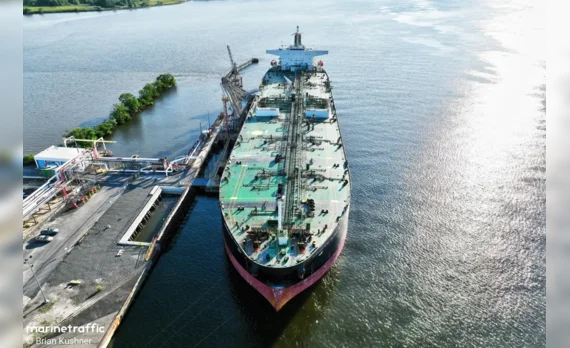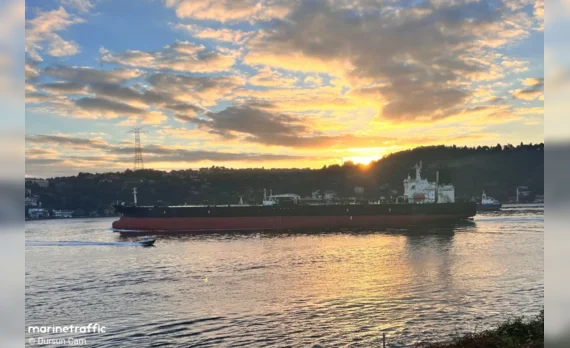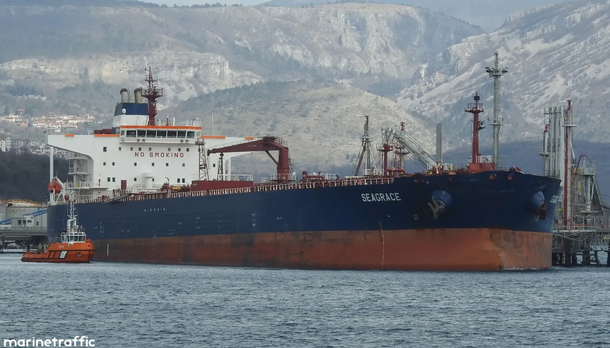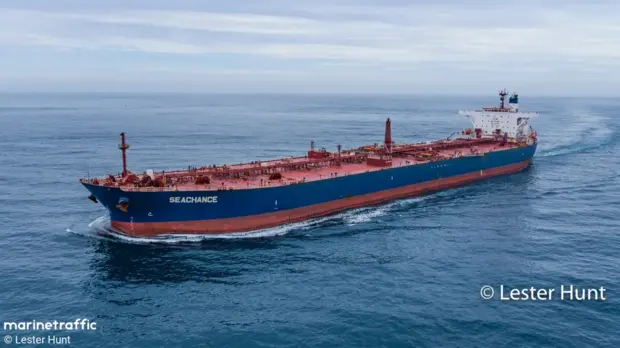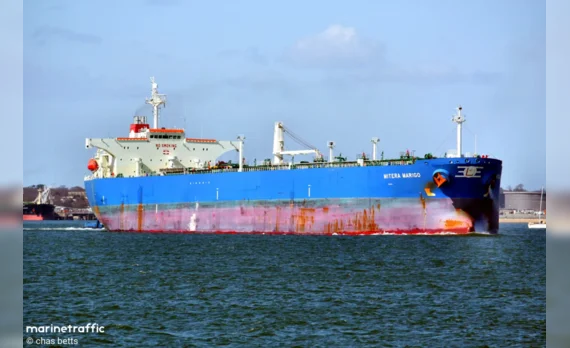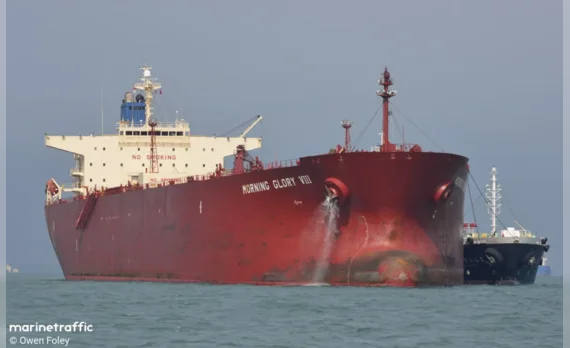During the period of the G7 and EU oil embargo and the price-cap policy on russian oil, the tanker was involved in the export of russian oil from russian ports to third countries, resorting to the practice of turning off the AIS signal, conducting so-called 'dark activities' at sea.
The international NGO Greenpeace refers to the tanker as part of the shadow fleet of tankers that transport russian oil around the world and threaten the environment.The vessel is certified by the Indian regulator Indian Register of Shipping (IACS).
The tanker IMO 9332834 is affiliated with the Indian company Gatik Ship Management, one of the leading operators of the so-called 'shadow' fleet involved in the transportation of russian crude oil under Western sanctions, and the Gatik-related company Galena Ship Management, which in 2023, together with Caishan Ship Management, Gaurik Ship Management LLP, Plutos Ship Management, Geras Ship Management, Girik Ship Management, Orion Ship Management LLP, Nautilus Shipping (India), Ark Seakonnect Shipmanagement LLC, Zidan Ship Management, was involved in a scheme to 'juggle' vessels operated by Gatik Ship Management to avoid sanctions.
Gatik Ship Management and Galena Ship Management were the previous managers of the tanker IMO 9332834.
Tankers operated/managed by India's Gatik Ship Management continue to be used by related companies and call at russian ports.
As sanctions are being imposed, russia uses a scheme of "juggling" ships between related companies to conceal oil exports outside the price cap and other restrictions, as well as to hide the real owners of ships, and to ensure unimpeded transportation of fossil fuels by a 'shadow' fleet of obsolete oil tankers, creates new companies for these purposes (in the UAE, Hong Kong, India, Turkey, Mauritius, Seychelles, and other jurisdictions) with non-transparent organizational and ownership structures. In order to implement this scheme, technical/commercial management and ship owners are constantly changing, and vessels are renamed with a change of flag, MMSI, call-sign, including for sanctioned vessels. Shadow fleet vessels operate under “convenient flags”, which allows them to conceal their true origin and avoid control by international organizations and insurance companies.
Almost all vessels that are involved in the transportation of russian oil by the shadow fleet since 2022 have been certified by the Indian regulator Indian Register of Shipping (IACS). The certification of shadow fleet vessels allows the shipowner/operator to insure the vessels, which, in turn, allows the vessels to enter ports and pass through various specific sea routes (straits, canals, etc.).
The shadow fleet, transporting huge volumes of crude oil through heavily trafficked routes through narrow straits close to the coastline, without proper P&I insurance, with automatic identification systems disabled, threatens an environmental disaster with significant economic costs to be borne by the affected coastal countries and/or the international community. The incidents off Malaysia only underscore the need for swift action to curb the potentially devastating impact of the growing 'shadow fleet'. 'Shadow' tankers have already been involved in 50 incidents from the Danish Straits all the way to Malaysia since russia's full-scale invasion of Ukraine.
Тhe shadow fleet of the russian federation continues to provide multibillion-dollar revenues for the kremlin bypassing sanctions, disguising its activities under the flags of third countries, using complex schemes to conceal owners, and poses significant threats to environmental safety with significant economic costs for coastal countries and/or the international community due to the outdated and inadequate insurance of shadow fleet tankers.
On February 24, 2025, the United Kingdom imposed sanctions on the vessel.
On April 11, 2025, Ukraine imposed sanctions on the master of vessel IMO 9332834.
In June 2025, Canada imposed sanctions on the vessel.
In June 2025, Australia imposed sanctions on the vessel.
From July 20, 2025, the EU imposed sanctions on a tanker for transporting crude oil/petroleum products that originate in russia or are exported from russia using irregular and high-risk shipping practices as set out in the International Maritime Organization General Assembly resolution A.1192 (33).
On August 12, 2025, Switzerland imposed sanctions on the vessel.
Since September 12, 2025, New Zealand has imposed sanctions on the vessel.
